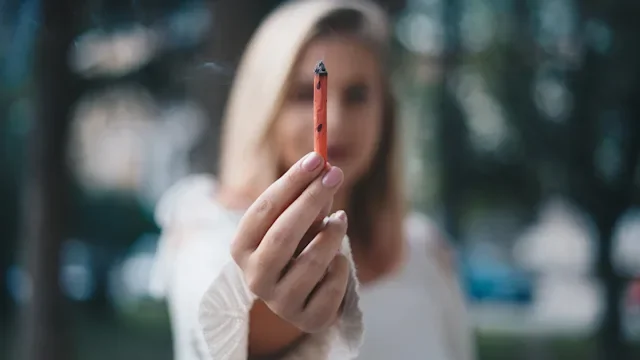Key takeaways:
Our body’s response to alcohol may change over time.
As we age, sleep struggles may be more pronounced with alcohol use.
People tend to take more medications as they get older. Alcohol can interact with these medications and increase the risk of falls and accidents.
Ending the day with an alcoholic beverage is a favored part of many people’s evening routines. Enjoying drinks and dinner with friends may also be a treasured pastime.
But what happens when our body’s response to alcohol begins to change as we age? Three people over the age of 40 share their experiences with aging and alcohol use.
The effects of alcohol and aging
Alcohol use in general can affect the body in a variety of ways. In the short term, alcohol can impact your mood, coordination, and memory. The long-term effects of overusing alcohol may include things like weight gain, liver disease, or elevated blood pressure.
Search and compare options
It is no secret that our bodies change with age. The way our body responds to things changes as well. The relationship between alcohol and aging is no different. Many older people report lower tolerance levels for alcohol and not being able to drink as much as they could when they were younger. Sleep disturbances are also a commonly discussed concern with alcohol consumption and age.
A lower tolerance for alcohol

Tanya Trevett is a 52-year-old entrepreneur and author from Boston. She has noticed a difference in her body’s tolerance for alcohol, especially after going through menopause. In the past, Tanya says she would think nothing of having a glass or two of wine in the evening or when going out with friends.
“Now, I could have a couple sips of wine and already feel it,” she says. “If I drink two glasses of wine, my response the next day is almost worse than a typical hangover. I just feel off, extremely tired, and nauseous.”
Tanya says during her forties, going out with friends on a Friday night and having two or three margaritas was an enjoyable experience.
“I would feel a little buzzed, but my body could handle it, and I wouldn’t feel hungover the next day,” she says.
Now, Tanya doesn’t get the same pleasant effects from drinking.
Read more like this
Explore these related articles, suggested for readers like you.
“I don’t get the effect of relaxation. It [drinking] just doesn’t feel good anymore. I tried to have a margarita over a year ago, and it’s just not fun anymore. I do not feel buzzed or happy. I just feel bad.”
For Tanya, the change in tolerance has been so drastic since menopause that she is going to bring it up with her doctor at an upcoming appointment.
Infrequent happy hours
Bill Donahue is a 49-year-old novelist and magazine editor from Bethlehem, Pennsylvania. He, too, has noticed a big difference in his body’s tolerance for alcohol.
A few years back, Bill says, he would end almost every workday by having drinks with coworkers.
“I would have three or four glasses of wine at the bar, and then have another one or two at home,” he says. “I did this at least three days a week, sometimes more often.”
It’s not something he does any longer.
“My tolerance to alcohol is much different now,” he says. “At 49, I'm not a teetotaler, but I have a drink maybe once every three weeks, as opposed to more than a full bottle of wine, if not more, every night.”
The effects of drinking have changed for Bill as well. “One drink makes me feel tired and tipsy… ‘cloudy,’ I call it,” he says. “Unless my wife and I are having dinner with friends over the course of a long night, it's rare I have more than one drink.”
Quality over quantity
Chaundria Singleton is 44 and lives in Atlanta. She is a health coach and works in radiology. She says she can no longer drink the same amount of alcohol as she used to when she was younger.
The quality of what she is drinking plays a major role in how she feels. Higher-quality liquors or vegan wines and beers seem to have fewer negative side effects. Even so, she can still feel the effects of alcohol more quickly than in the past.
“I will only drink quality liquors when I do drink, and even then, I do not drink a lot,” she says.
When alcohol causes sleep problems
Many people, regardless of age, will notice a difference in sleep quality with alcohol use. As people age, however, these differences may become more extreme. Chaundria says that Fridays used to be her designated days to drink.
“I would have a glass of wine or a cocktail after work,” she says. “I would go out and drink with friends.”
That changed after she turned 40. “I realized that I started to have different side effects,” she says. After drinking, she would have poor sleep quality and found it harder to fall asleep. She would wake up sweating and experience swelling in her feet.
Tanya has noticed that if she has a drink in the evening, her sleep is disrupted. “If I have a glass of wine, I have trouble falling asleep and staying asleep, which contributes to the next day’s exhaustion,” she says.

Bill also has difficulty falling asleep after having two or more glasses of red wine. This is a rather new occurrence for him.
“When I'm going to bed after two or more glasses of red wine, my heart races — a frightening feeling.”
Alcohol’s contribution to other medical issues
Several health concerns and conditions may arise or worsen with prolonged or excessive alcohol use.
Chaundria says that this is a big factor in why she chose to change her drinking habits. She has fibrocystic breast disease and a family history of cancer.
“My family has a history of breast cancer, so I still drink but I do not drink as often.”

Chaundria also noticed a change in her voice when she was drinking more. She used to travel a lot for work and would enjoy an alcoholic beverage on her flights.
“I was probably drinking the most during this time,” she says. “I noticed I would get kind of hoarse, and it was affecting my vocal cords.”
Her doctor confirmed that hoarseness could be a result of alcohol use.
The emotional toll of alcohol and age
Beyond the physical effects of alcohol, some people notice a change in their emotional responses as well. Bill says that as he has gotten older, he has realized how alcohol amps up his emotional responses.
“I have a bad temper and a long fuse, but that fuse shortens when I drink too much,” he says. That insight gave him pause and made him rethink his relationship with alcohol. As a result, he began to ease off the drinking and started to spend less time with his drinking companions.
He has noticed a big difference in the quality of his life since he started drinking less: “One of the benefits of changing my habits is that I now feel more productive in my personal life and professional life,” he says.
What does the doctor say?

Patricia Pinto-Garcia, MD, MPH
Medical Editor
It’s true that alcohol affects people differently as they get older. People’s alcohol tolerance drops as they age.
Your liver gets older, too — which means it doesn’t process alcohol as quickly as it did when you were younger. You also have lower muscle mass — which means your body has less water in it. That means alcohol is more concentrated within your body when you drink — increasing your blood-alcohol level.
Plus, as people get older, they tend to take more medications. Many medications can interact with alcohol and make you feel more impaired even if you drink a small amount.
The consequences of that can be more serious than a bad hangover. If they don’t realize their tolerance has shifted, older adults are at higher risk of getting injured from falls and car accidents. If you already have balance difficulties or vision impairment related to aging, adding alcohol in the mix can make things dangerous, not just for you but also the people around you. And alcohol can worsen some medical conditions, too.
This doesn’t mean you have to give up alcohol entirely once you’re over 40 years old (unless you want to). But as you get older, it’s important to keep these changes in mind. If you have underlying medical conditions or take medications, it’s a good idea to talk to your healthcare provider about how to safely consume alcohol as you get older.
Grieving old habits
Aging comes with a variety of emotions. When we experience changes to routine, activities, behaviors, and abilities as we age, some grief is normal. Tanya, Bill, and Chaundria all express the same sentiment. While they have all changed their drinking habits as they have gotten older, there is some level of nostalgia or grief that comes with that shift.
“I really wish I could still enjoy a drink or two. I just can’t anymore. Even going to brunch, I can’t have drinks and I kind of miss that,” Tanya says.
For Bill: “I love the idea of spending a weekend afternoon in a dark, open-air bar. But the physical and emotional toll just isn't worth it.”
Chaundria says she doesn’t like not being able to drink certain things without getting a headache or having it affect her sleep.
At the end of the day, aging is something we all go through. While some changes and experiences may be more pleasant than others, it is all a part of the natural process of growing older.

Why trust our experts?



















